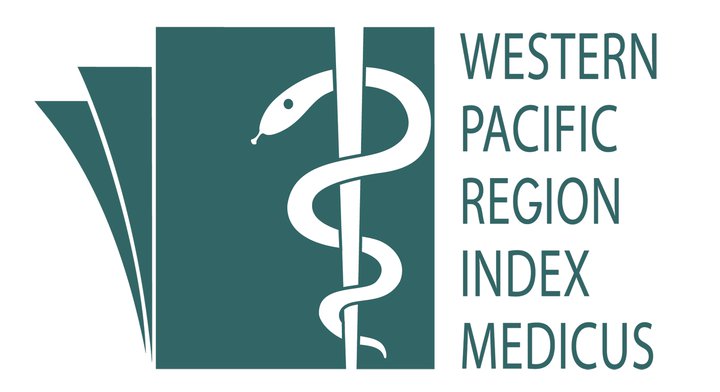Knowledge and Practice of Breastfeeding among Mothers in Arma’a District Shabwah Governorate - Yemen
Keywords:
Breastfeeding – Knowledge – Practice – Colostrum - Pre-lactealAbstract
Introduction: Breastfeeding is almost universal, but there are many barriers for proper breast feeding practices. Inadequate knowledge, or inappropriate practice, of breastfeeding may lead to undesirable consequences. The aim of this study was to assess breastfeeding knowledge, and practice among mothers in Arma’a district Shabwah governorate and identify factors that may affect breastfeeding practice in the study population.
Â
Methods: A cross-sectional study using pre-tested validated structured questionnaire conducted among mothers who were attending Arma’a hospital and four health care units around Arma'a district. Sample size was 130 mothers who had at least one child aged two years or younger. Breastfeeding knowledge and practice of participants were assessed based on their experience with the last child.
Â
Results: This study found that there are only 24 mothers (18.6%) have good knowledge while 106 mothers (81.4%) have low knowledge. 63 mothers (48.5%) had good breastfeeding practice while 67 mothers (51.5%) have poor breastfeeding practice. 54.0% mothers that have good knowledge have good practice while 52.8% mothers of poor knowledge have poor practice. Mothers’s education level and their practice was significantly associated with the number of pregnancies (p-value=0.04 and =0.027 respectively). There was no significant association with other demographic data, and between knowledge and practice. No exclusive breastfeeding reported in this study.
Â
Conclusion: This study shows that undesirable cultural practices such as giving pre-lacteal, avoiding exclusive breastfeeding are still prevalent among the mothers. The maternal knowledge towards breastfeeding was very low and there was big gap between actual and desired practices.
References
UNICEF. The States of the World’s Children, Focus on Nutrition, Oxford University Press, 1998: p. 28.
Ball TM, Bennett DM. The Economic Impact of Breastfeeding. Pediatric Clinics Of North America. 2001;48(1): 253-62.
WHO, (Infant and young child nutrition .Global strategy on infant and young child feeding . Report by the Secretariat 16 April 2002.
http://www.who.int/topics/breastfeeding/en/
http://www.who.int/maternal_child_adolescent/topics/child/nutrition/breastfeeding/en/
WHO (Global strategy for infant and young child feeding,the optimal duration of exclusive breastfeeding 1 May 2001.
IBFAN – International Baby Food Action Network, report on the situation of infant and young child feeding in yemen December 2013.
Muhammed S.A. Masood et al, maternal factors associated with the breastfeeding Status in Sana'a, Yemen 2013.
Report on the Knowledge, Attitudes and Practices (KAP) Survey breastfeeding and complementary Feeding, Khatlon Oblast, Tajikistan, 2007.
Vyas Shaili et al, a community based study on breastfeeding practices in a rural area of Uttarakhand, 2012.
Chaudhary RN et al, Knowledge and practice of mothers regarding breast feeding: a hospital based study, Dharan, Nepal 2011
Sharanya b. et al, kap study of factors promoting breastfeeding in nursing mothers and pregnant women, India. 2013.
Laxman Kumar, Kashif Shahnawaz, Gaurav Varma, Sanjay Kumar Choudhary. Knowledge, Attitude and Practices of Nourishing Mothers about Breast Feeding, Attending Urban Health Centre: A Cross-Sectional Study from Kishanganj, Bihar. Journal of Evolution of Medical and Dental Sciences. 2014; 3(07): 1681-1690, DOI: 10.14260/jemds/2014/2042.
Ali M. Al-Binali. Knowledge, Attitude and Practice of Breast-Feeding Among Female Health Care Workers in Tertiary Care Hospitals, Saudia Arabia. 2010.
Norhan Zeki Shaker, Dr. Kareema Ahmad Hussein, Dr. Sawsan I.I, Al-Azzawi. Knowledge, Attitude and Practices (KAP) of Mothers toward Infant and Young Child Feeding in Primary Health Care (PHC) Centers, Erbil City. Kufa Journal for Nursing Sciences. 2012;2(2):1-10.
Vandana Tiwari, Anita Singh. Knowledge, Attitude and Practice of Mothers Regarding Breastfeeding in an Urban Area of Faizabad District (U.P). Indian Journal Preventive & Social Medicine. 2007;38(1): 2.
Ali Mohamed Al-Binali. Breastfeeding knowledge, attitude and practice among school teachers in Abha female educational district, southwestern Saudi Arabia. Al-Binali International Breastfeeding Journal. 2012; 7: 10 http://www.internationalbreastfeedingjournal.com/content/7/1/10).
Dr Tan Kok Leong. Knowledge, attitude and practice on breastfeeding in Klang, Malaysia. The International Medical Journal. 2009;8(1): 17-21.
Sumera A, Ayesha MI, Syed Faizan A, Samia A. Perception and practices of breastfeeding of infants 0-6 months in an urban and a semi-urban community in Pakistan: a cross-sectional study. Journal of the Pakistan Medical Association. 2011;61(1): 99-104.
R.Harnagle and P.S. Chawla A study of knowledge, attitude and practices (kap) of lactating mothers on breast feeding, weaning immunization and dietary practices at Jabalpur cantonment, India. International Journal of Current Microbiology and Applied Sciences. 2013;2(11): 393-403.
Downloads
Published
How to Cite
Issue
Section
License
IJPHR applies the Creative Commons Attribution (CC BY) license to articles and other works we publish. If you submit your paper for publication by IJPHR, you agree to have the CC BY license applied to your work. Under this Open Access license, you as the author agree that anyone can reuse your article in whole or part for any purpose, for free, even for commercial purposes. Anyone may copy, distribute, or reuse the content as long as the author and original source are properly cited. This facilitates freedom in re-use and also ensures that IJPHR content can be mined without barriers for the needs of research.





